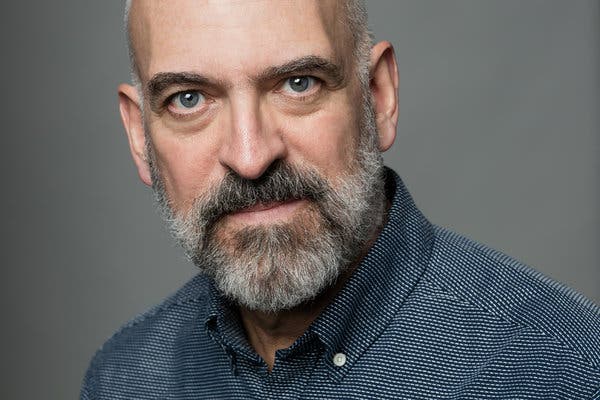What’s the most surprising thing you learned while writing it?
I tried to surprise myself with every sentence. I didn’t want it to be simply an excavation of anything I already knew. I was trying to lean toward the unexpected, paragraph by paragraph. I knew if I didn’t find that energy, I would lose interest and the reader would lose interest.

It occurred to me that a lot of my previous work was invested in the management of feeling, and if the version of me I was writing about was confused or full of rage, I would find some way to process that emotion into something more palatable. This book on a certain level was about the tension between a performative emotion and raw feeling. I ended up giving myself permission to put more chaos on the page than I ever had before. A lot of queer people — a lot of people — are told to buck up, swallow your feelings, behave. And I think a lot about the cost of that. Suppressing hurt and rage — those are important social tools, and yet if we become champions at those social tools, all of that can come back and hurt us and have a cost on how we love, how we connect with our friends and partners.
In what way is the book you wrote different from the book you set out to write?
At a certain point, the energy stopped and whatever I was doing did not really feel authentic to the experience. I ended up putting it aside for some months. I came back to it and pulled it apart a bit and wrote something more immediate. I flipped it into the present tense and introduced some fragmentary sections that might function on the page as prose poems. It felt like the book I ended up writing could be a container for irreverence and dread and joy and rage.
I can’t write any memoir without envisioning that “I” as a constructed thing. My education was as a fiction writer, and I started writing fiction because I wanted to escape myself, I wanted to be someone else. I started writing nonfiction when it became clear to me that that voice is also a made thing, and in some way it has some correlation to the narrator in fiction. The “I” of one book should be a different “I” than in another book.
Who is a creative person (not a writer) who has influenced you and your work?
I first heard Joni Mitchell’s music when I was 10 years old, and I thought: Who’s that? What’s that? It wasn’t necessarily the sound of her voice — which felt distinctive — but I knew there was something unique about how her songs moved. My sense, even though I didn’t have the musical tools to articulate it, was that she was making up music on her own terms. I continue to love her work. It’s the meticulousness of it, the loyalty to idiosyncrasy, the respect for emotional complexity, the refusal to repeat one’s own rules or habits. She’s willing to be an amateur with each album and try to do something new. She’s probably changed my life like no other artist has, and I think of her all the time. There are nods to her in all of my books — not just in section titles, but in patches of images collaged throughout that only the most rabid fan could pick up.
 EU News Digest Latest News & Updates
EU News Digest Latest News & Updates



